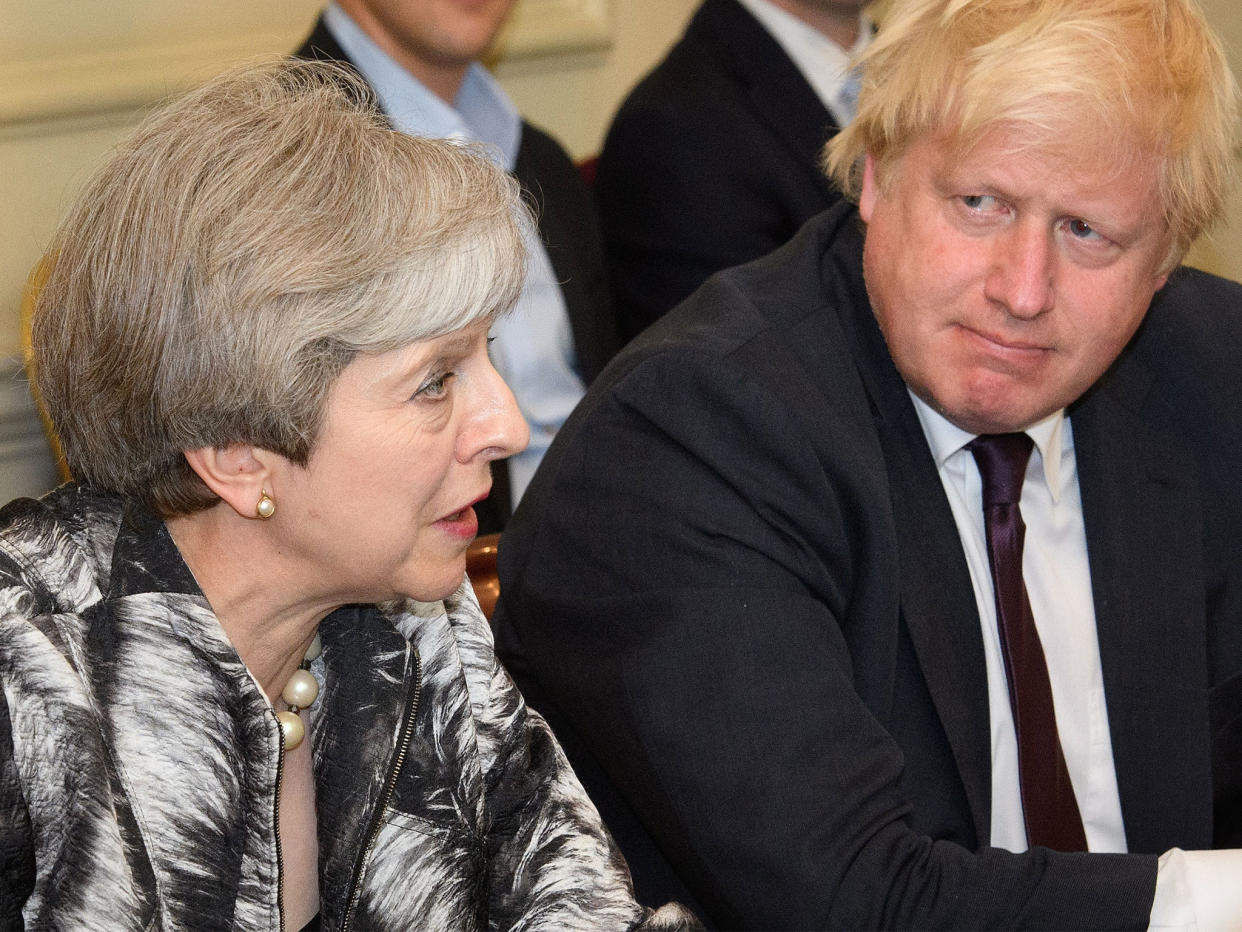Theresa May insists she will try to sign new trade deals before Brexit transition is over

Theresa May will insist on Monday that she will try to sign new free trade deals during the UK’s Brexit transition period, setting herself on a collision course with Brussels.
Ms May will tell the House of Commons she will attempt to finalise the deals “where possible”, despite the EU signalling it would not be feasible under terms for the transition they are proposing.
The Prime Minister will also use her statement to calm an emerging row over the conditions that should apply during the two-year period in which Britain untangles itself from EU systems.
Earlier on Monday, she is also due to meet her most senior ministers to discuss what kind of trade deal the UK should have with Europe after the end of the transition, which is likely to last from 2019 to 2021.
Ms May's statement in the Commons will see her indicate that she is determined to push towards the UK’s post-Brexit systems on trade and immigration.
She will say that during the transition, she intends to “register new arrivals from the EU as preparation for our future immigration system”.
“And we will prepare for our future independent trade policy by negotiating – and where possible, signing – trade deals with third countries, which could come into force after the conclusion of the implementation period.”
EU officials have said that while the UK may be able to hold talks during the transition, nothing should be signed, because that would break with customs union rules to which Britain must adhere up to 2021.
The Prime Minister will also use her statement to underline the previously agreed Cabinet position on transition, in a bid demonstrate unity as internal discussions go on.
She will say: “As I proposed in Florence, during this strictly time-limited implementation period which we will now begin to negotiate, we would not be in the single market or the customs union, as we will have left the European Union.
“But we would propose that our access to one another's markets would continue as now, while we prepare and implement the new processes and new systems that will underpin our future partnership.
It follows a weekend in which Chancellor Philip Hammond and Foreign Secretary Boris Johnson set out divergent views of how cleanly the UK should break from the EU during the period.
On Saturday, Mr Hammond said the UK would pursue a two-year transition phase that would “effectively replicate the status quo”.
Speaking while on a trade mission in China, he was asked whether firms should expect a transition deal that would see the UK stay in the single market, customs union and subject to the European Court of Justice (ECJ).
He answered: “In a word, yes.”
The Chancellor explained: “What they should expect as a result of the agreement we’ve reached this week with the European Union is a transition, or implementation period, which will start at the end of March 2019, during which we will no longer be members of the European Union.
“We won’t technically or legally be in the customs union or in the single market, but we’re committed as a result of the agreement we’ve made this week to creating an environment which will effectively replicate the current status quo, so that businesses can carry on trading with their commercial partners across the EU as they do now.
“Borders will operate as they do now and financial services businesses will be able to carry on conducting their business across borders as they do now.”
But in an interview with The Sunday Times, Mr Johnson said any deal must give Britain “that important freedom to decide our own regulatory framework, our own laws and do things in a distinctive way”.
He said if the UK was forced to mirror EU laws, many people “would say, ‘What is the point of what you have achieved?’ because we would have gone from a member state to a vassal state”.
The EU’s guidelines for the next phase of Brexit talks were set out in Brussels on Friday, after leaders of the 27 other member states agreed to move on to the second stage of the process covering a transitional period and early talks on future trade.
It makes clear that during the transition, the EU expects the UK to observe all of its rules, including freedom of movement, and accept the jurisdiction of the European Court.
Monday's meeting of the Brexit “war Cabinet” is the first time top ministers will discuss the final relationship the UK will have with the EU after the Brexit transition period, and will be followed by a series of further meetings and a hoped-for agreed position early in the new year.
One government source told The Independent: “The process needs to bottom out, in the end what we want to keep the same as the EU, where we want to diverge and what we’re willing to give up.
“There will be a broad consensus arching over that, which people can stick to publicly, but the things that need ironing out are the details of where we eventually diverge with Europe and to what extent.”
Ms May has indicated in the past that the UK will seek a broad free-trade agreement with the EU, that maintains the best possible access to the single market.
Mr Hammond, backed by Home Secretary Amber Rudd and Business Secretary Greg Clark, are advocating a position close to existing EU systems in order to maximise the economic benefits of the single market.
But Mr Johnson, Environment Secretary Michael Gove, International Trade Secretary Liam Fox and Brexit Secretary David Davis are pushing for a tilt towards global markets.
EU officials have urged the UK to nail down exactly what it wants from the end state before beginning serious discussion on it, with negotiations in the meantime concentrating on the transition.
